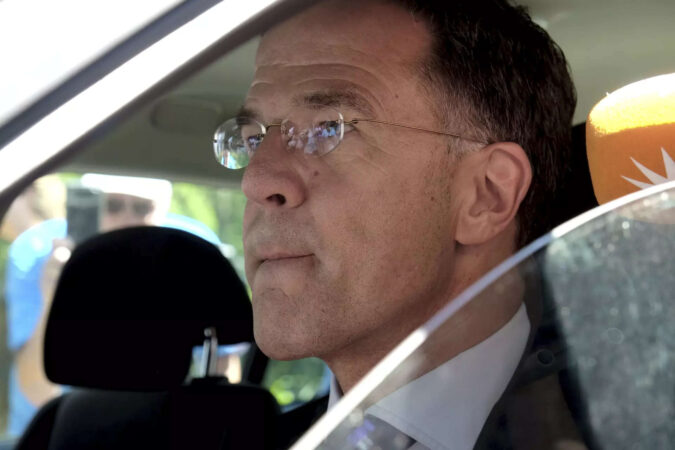THE HAGUE: Dutch Prime Minister Mark Rutte, the Netherlands’ longest serving premier, said Monday he will leave politics after a general election sparked by his government’s resignation.
His decision means the end of more than 13 years in power for the conservative leader sometimes called Teflon Mark because scandals that plagued his four different administrations did not stick to him.
Rutte, the 56-year-old leader of the People’s Party for Freedom and Democracy, or VVD, announced his decision at a hastily arranged parliamentary debate to discuss the fall of his latest governing coalition.
“Yesterday morning I made a decision that I will not be available again as a leader of the VVD. When a new Cabinet takes office after the elections, I will leave politics,” he said.
Rutte called is a “personal decision, regardless of the developments in recent weeks.”
Rutte’s four-party ruling coalition resigned Friday after failing to agree on a package of measures to rein in migration. He said it was a unanimous decision by the four partner parties prompted by “irreconcilable differences.”
There was no immediate indication who might replace Rutte as leader of the VVD. The party’s parliamentary faction is led by Sophie Hermans, Rutte’s former political assistant.
No date has yet been set for the election, but it is not expected before October or November.
His decision means the end of more than 13 years in power for the conservative leader sometimes called Teflon Mark because scandals that plagued his four different administrations did not stick to him.
Rutte, the 56-year-old leader of the People’s Party for Freedom and Democracy, or VVD, announced his decision at a hastily arranged parliamentary debate to discuss the fall of his latest governing coalition.
“Yesterday morning I made a decision that I will not be available again as a leader of the VVD. When a new Cabinet takes office after the elections, I will leave politics,” he said.
Rutte called is a “personal decision, regardless of the developments in recent weeks.”
Rutte’s four-party ruling coalition resigned Friday after failing to agree on a package of measures to rein in migration. He said it was a unanimous decision by the four partner parties prompted by “irreconcilable differences.”
There was no immediate indication who might replace Rutte as leader of the VVD. The party’s parliamentary faction is led by Sophie Hermans, Rutte’s former political assistant.
No date has yet been set for the election, but it is not expected before October or November.
